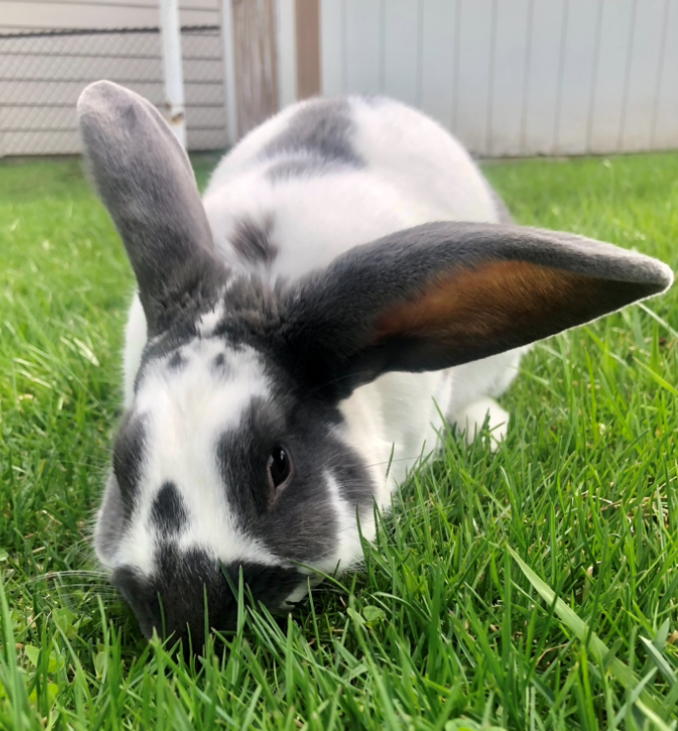

MINNEAPOLIS, Minn. (May 3, 2023) – When many Americans celebrate Cinco de Mayo, they do it with tequila, tacos and guacamole, that tasty Mexican treat made from the fruit of the avocado tree. What they may not know, however, is that both the delicious fruit and the plant’s leaves are highly toxic to many animals, including rabbits, birds and large animals like cows, goats and sheep.
“Avocados contain a chemical called persin, but only certain species of animals are poisoned by this fungicidal toxin present in the avocado,” said Renee Schmid, DVM, DABT, DABVT, a senior veterinary toxicologist at Pet Poison Helpline. “In rabbits, persin can cause significant damage to the heart muscle, leading to cardiovascular abnormalities including arrhythmias as well as fluid around the heart (pericardial effusion), fluid accumulation in the lungs (pulmonary edema) and respiratory distress. These abnormalities may result in rapid death. For those of us who like guacamole, fortunately, persin does not have the same effect on humans.”
Although some animals can be poisoned by the fruit, the bigger risk to dogs and cats is a foreign body obstruction in the esophagus, stomach or intestinal tract if a large avocado pit is swallowed. Pancreatitis (inflammation of the pancreas) is also possible due to the high fat content in avocados.
While all parts of the plant are of concern, the most dangerous parts of the avocado tree are the leaves and fruit. A few years ago, Andrew and Emma Simpson from Tonawanda, New York planted an avocado pit that has since grown into a beautiful tree. Little did they know then that their home-grown botanical creation would end up poisoning their recently adopted rabbit named Skunk.
“We planted an avocado pit a few years ago, and it has grown into a little tree,” said Simpson, Skunk’s owner. “Skunk, who we rescued, is our first rabbit and he gets into everything. We had him about three weeks when he decided to go exploring and found the avocado tree. When we realized that he had eaten a portion of the leaf, we googled it and found that the leaves are the most poisonous part of the plant. That’s when we started calling veterinarians.”
Simpson called several local veterinary hospitals to find one that treated exotic pets like rabbits. One of the first hospitals he called recommended they contact Pet Poison Helpline, who started working on Skunk’s case while he found a specialty hospital that could treat the poisoned bunny. Finally, Simpson reached the Enchanted Mountains Urgent Veterinary Care in Olean, New York.
“I thought, great, we’ve only had Skunk three weeks and we’ve already killed him,” added Simpson. “Fortunately, by the time Skunk arrived at the hospital the medical team was already in contact with the toxicology experts at Pet Poison Helpline. They treated him right away with activated charcoal, and we took him home later that day.” Skunk was lucky to have attentive owners who recognized the potential risk and sought treatment immediately. Their quick actions likely prevented Skunk from developing significant signs that would have required more aggressive care.
Skunk is May’s Toxin Tails case of the month. Pet Poison Helpline created Toxin Tails to educate the veterinary community and pet lovers on the many types of poisoning dangers facing pets, both in and out of the home. All the pets highlighted in Toxin Tails have been successfully treated for the poisoning and fully recovered.
About Pet Poison Helpline
Pet Poison Helpline®, your trusted source for toxicology and pet health advice in times of potential emergency, is available 24 hours, seven days a week for pet owners and veterinary professionals who require assistance treating a potentially poisoned pet. We are an independent, nationally recognized animal poison control center triple licensed by the Boards of Veterinary Medicine, Medicine and Pharmacy providing unmatched professional leadership and expertise. Our veterinarians and board-certified toxicologists provide treatment advice for poisoning cases of all species, including dogs, cats, birds, small
mammals, large animals and exotic species. As the most cost-effective option for animal poison control care, Pet Poison Helpline’s fee of $85 per incident includes follow-up consultations for the duration of the case. Based in Minneapolis, Pet Poison Helpline is available in North America by calling 800-213-6680. Additional information can be found online at
www.petpoisonhelpline.com.

